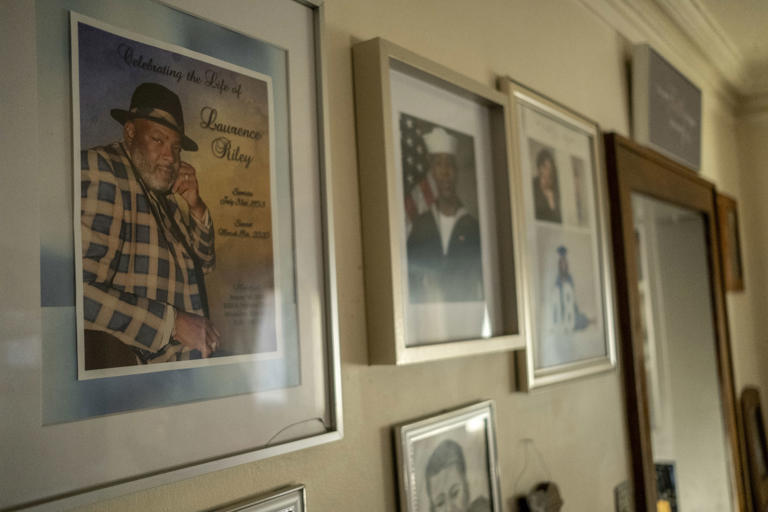A 24-year-old woman from Milwaukee, Wisconsin, sees voting as more than a civic duty. For Whitley Riley, voting in the upcoming election and any election is a tribute to her father, Lawrence Riley, who was Milwaukee’s first reported COVID-19 fatality in March 2020.
Lawrence’s death was part of a devastating wave of virus-related losses that disproportionately impacted Milwaukee’s Black neighborhoods, and his story has fueled Whitley’s relentless drive to keep his memory alive by urging others to participate in the upcoming presidential election.
Her father’s passing remains fresh in Whitley’s mind, as do the disparities that plagued her neighborhood in Milwaukee’s Sherman Park and neighboring Metcalfe Park during the early days of the pandemic.

While health resources were directed primarily toward White communities, Whitley watched helplessly as misinformation and inequitable care contributed to higher mortality rates among Black residents.
According to a CDC report, Black Americans were three times as likely to die from COVID-19 in 2020 as their White counterparts, an imbalance felt acutely in Milwaukee, where the city’s first 45 deaths included 33 Black residents.
To Whitley, voting against the re-election of Donald Trump is a way to challenge the policies she believes led to her father’s premature death. Her commitment to Kamala Harris’s campaign, though nuanced by criticism, is unwavering.
She frequently challenges friends and family members who consider third-party candidates, including her cousin who advocated for Cornel West.
“It’s a life-or-death matter for my community,” she tells the The Washington Post, lamenting the political amnesia surrounding the pandemic’s toll.
The 2024 election season has been marked by some Black voters distancing themselves from the Democratic Party over unmet promises, but Whitley’s passion is unchanged.
“If Trump wins, I’ll regret it forever if I didn’t vote,” she says.
At a recent baby shower, she encountered an 18-year-old wearing a MAGA hat. They engaged in a heated conversation, with Whitley recalling her father’s encouragement to be informed and engaged in the democratic process.
Whitley’s persistence sometimes strains her relationships, including with her boyfriend, Kenneth Bargy. “I need a partner who votes,” she’s told him, even going so far as to confirm his voting history.
Despite her community’s mixed feelings, she remains vigilant, canvassing Sherman Park and Metcalfe Park, often with friends from the nonprofit Metcalfe Park Community Bridges.
The organization, run by Danell Cross and her daughter Melody McCurtis, distributes resources to low-income residents while promoting voter engagement.
They organize election-week barbecues, distribute candidate pamphlets, and answer questions about local ballot issues.
While Whitley’s activism has reignited some conversations about voting, she acknowledges that her impact is limited. At a recent conversation with her friend Imaria Noel, who expressed disillusionment with both major political parties, Whitley persuaded her to at least consider local issues if she left the presidential line blank.
“Progress can be slow, but it’s still progress,” Whitley reflected.
On a crisp fall morning, Whitley and her mother, Linda, joined a growing line at their local polling place, witnessing what seemed to be an unprecedented turnout.
As they waited to vote, they observed people of all ages standing in line.
“Maybe we are taking this election seriously,” Whitley remarked, hopeful that her father’s legacy and her tireless advocacy might inspire others to vote — not just for their future, but for the memory of those lost too soon.
